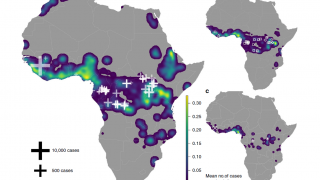231 Guillain-Barré Syndrome Cases Confirmed in Peru

The World Health Organization (WHO) today published an update Disease Outbreak News regarding the Republic of Peru's ongoing Guillain-Barré Syndrome (GBS) outbreak.
On July 25, 2023, the WHO reported 130 suspected cases of GBS between June 10 and July 15, 2023. Of these cases (94 cases) presented with upward progression of paralysis as a neurological manifestation.
Throughout 2023 (until July 15, 2023), a total of 231 cases have been confirmed.
To date, the potential cause of the unexpected GBS incidence remains under investigation.
Furthermore, the WHO and the U.S. CDC have not issued any recommendations to impose travel and/or trade restrictions in response to this GBS outbreak.
The Presidency of the Republic of Peru declared a national health emergency in early July 2023, due to the unusual increase and enhanced the implementation of public health responses.
In 2019, Peru reported an unprecedented outbreak of GBS that affected several regions of the country, with almost 700 reported cases.
From the clinical-epidemiological characteristics and the study of the identified agents, it was concluded that the outbreak was associated with the presence of the Campylobacter jejuni sequence type 2993 genotype.
The WHO says GBS is a rare neurological disorder of variable clinical severity, including fatal outcomes. It is the most common form of acute flaccid paralysis (AFP), a polio-like disease.
It is characterized by motor weakness, areflexia (absence of muscle reflexes), sensory abnormalities, and elevated protein levels in cerebrospinal fluid (cytoalbuminologic dissociation). Most often, an upper respiratory or gastrointestinal illness typically precedes GBS.
No known cure for GBS nor protective vaccines is available, says the WHO.
Our Trust Standards: Medical Advisory Committee




